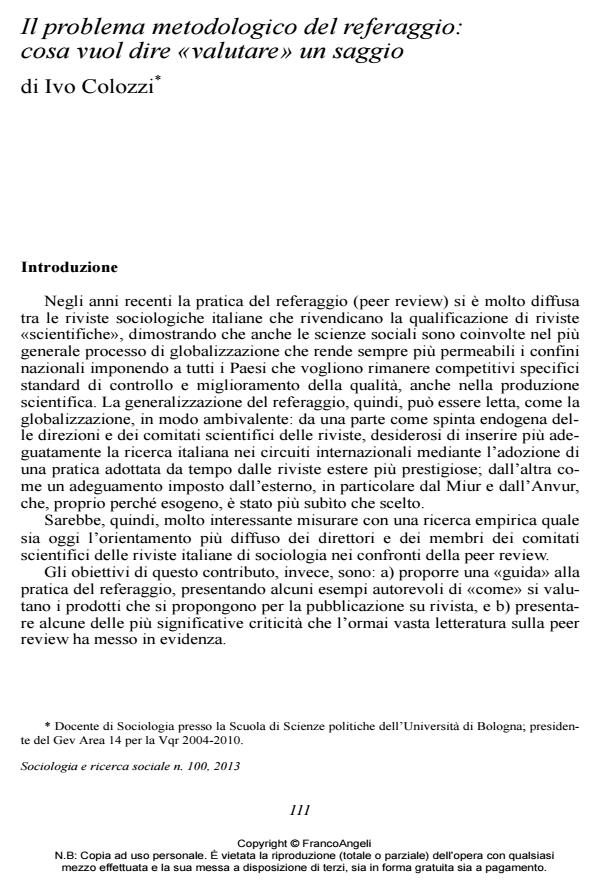Il problema metodologico del referaggio: cosa vuol dire «valutare» un saggio
Titolo Rivista SOCIOLOGIA E RICERCA SOCIALE
Autori/Curatori Ivo Colozzi
Anno di pubblicazione 2013 Fascicolo 2013/100
Lingua Italiano Numero pagine 11 P. 111-121 Dimensione file 627 KB
DOI 10.3280/SR2013-100011
Il DOI è il codice a barre della proprietà intellettuale: per saperne di più
clicca qui
Qui sotto puoi vedere in anteprima la prima pagina di questo articolo.
Se questo articolo ti interessa, lo puoi acquistare (e scaricare in formato pdf) seguendo le facili indicazioni per acquistare il download credit. Acquista Download Credits per scaricare questo Articolo in formato PDF

FrancoAngeli è membro della Publishers International Linking Association, Inc (PILA)associazione indipendente e non profit per facilitare (attraverso i servizi tecnologici implementati da CrossRef.org) l’accesso degli studiosi ai contenuti digitali nelle pubblicazioni professionali e scientifiche
The paper proposes first a «guide» to the practice of refereeing, presenting some prominent examples of «how» are evaluated the products submitted for publication in journals. The examples allow understanding what are the procedures used and the profiles on which assessment is required (originality, structure, data correctness, accuracy of references, etc.). Are then presented some of the most significant problems that the vast literature on peer review has highlighted, in particular: how effective it is, that is able to detect misconduct (falsification of data, plagiarism, etc.), how much is fair, that is able to avoid the creation of systematic discrimination against certain groups of researchers or nonconventional shapes and innovative research, how efficient, ie not responsible for slowing the spread of new research and overloading the best researchers.
Ivo Colozzi, Il problema metodologico del referaggio: cosa vuol dire «valutare» un saggio in "SOCIOLOGIA E RICERCA SOCIALE " 100/2013, pp 111-121, DOI: 10.3280/SR2013-100011